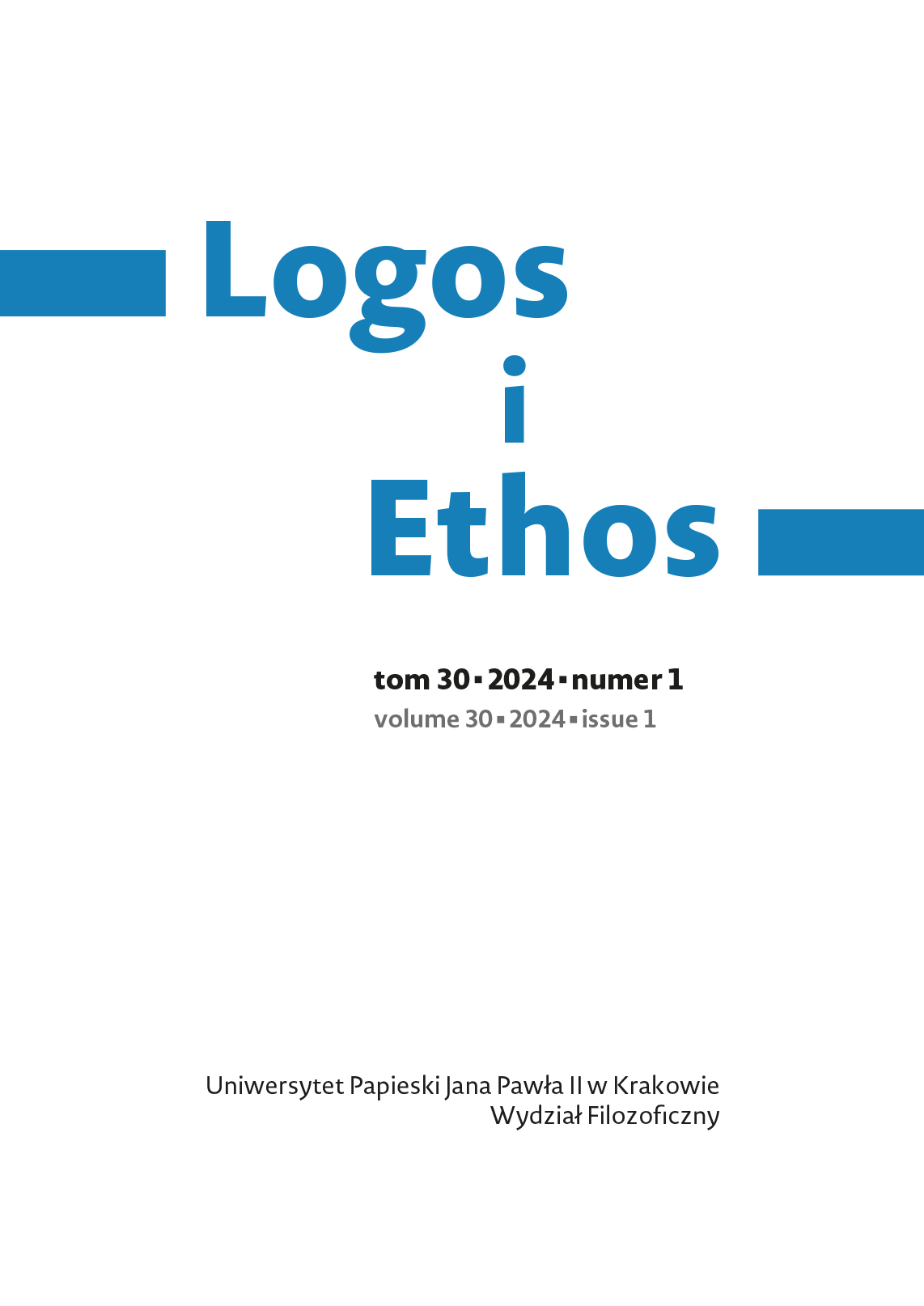Józef Tischner’s philosophy of the mountains. In search of a source metaphor
DOI:
https://doi.org/10.15633/lie.30104Keywords:
the source metaphor of the philosophy of mountains, critique of mountain reason, philosophy of Józef Tischner, transcendentals (beauty-truth-goodness), metaphor of selfAbstract
The essay is an attempt to take the first steps leading to the formulation of a philosophy of mountains inspired by the writings of Józef Tischner, starting from the description of source metaphors of the philosophy of mountains.
References
Balthasar H. U. von, Teologika, t. 1: Prawda świata, tłum. J. Zychowicz, Kraków 2005.
Balthasar H. U. von, Chwała. Estetyka teologiczna, t. 3.2: Teologia, cz. 2: Nowy Testament, tłum. J. Fenrychowa, Kraków 2010.
Bonatti W., Moje góry, Warszawa 1967.
Bonatti W., I miei ricordi, Milano 2020.
Bonowicz W., Trzy prawdy, „Przekrój” 4 (2021), s. 152–153.
Bruner J., The Narrative Construction of Reality, „Critical Inquiry” 18 (1991), s. 1–21.
Dennett D., The Self as a Center of Narrative Gravity, w: Self and Consciousness: Multiple Perspectives, eds. F. Kessel, P. Cole, D. Johnson, Hillsdale NJ, 1992, s. 103–115.
Dymarski Z., Wewnętrzna przestrzeń wolności a sprawa człowieka w ujęciu Józefa Tischnera, „Paedagogia Christiana” 41 (2018), s. 81–96.
Fisher W. R., Homo Narrans. The Narrative Paradigm: In the Beginning, „Journal of Communication (pre-1986)” 35 (1985), s. 74–89.
Gałkowski S., Granica filozofii. Metafora w filozofii na przykładzie języka Józefa Tischnera, w: Filozofia w literaturze, literatura w filozofii, red. A. Iskra-Paczkowska, S. Gałkowski, M. Stanisz, Rzeszów 2013, s. 42–51.
Glinkowski W. P., Problem sceny w Tischnerowskiej filozofii dramatu, „Analiza i Egzystencja” 34 (2016), s. 71–90.
Haldane J., Admiring the High Mountains: The Aesthetics of Environment, „Environmental Values” 3 (1994), s. 97–106.
Heller M., Szczęście w przestrzeniach Banacha, Kraków 1995.
Heller M., Nieliniowy model ewolucji nauki, w: M. Heller, Filozofia nauki, Kraków 2009, s. 84–92.
Hohenberg P., An introduction to consistent quantum theory, „Review of Modern Physics” 82 (2010), s. 2835–2844.
Houellebecq M., Cząstki elementarne, Warszawa 2020.
Kant I., Krytyka władzy sądzenia, Warszawa 2004.
Kot D., Człowiek we wnętrzu metafor, „Logos i Ethos” 32 (2012), s. 157–174.
Kot D., Filozofowie i górale, w: J. Tischner, Historia filozofii po góralsku, Kraków 2018, s. 139–165.
Kot D., Metaforyczność źródła w myśli filozoficznej Józefa Tischnera, „Zeszyty Naukowe UEK” (2016) nr 4, s. 49–63, https://doi.org/10.15678/ZNUEK.2016.0952.0404.
Królikowski A., „Medytacje Tischneriańskie, https://portal.tezeusz.pl/2009/03/06/medytacje-tischnerianskie (26.01.2023).
Meliville H., Moby Dick czyli biały wieloryb, t. 1, Warszawa 2018.
Meroi N., Non ti farò aspettare: tre volte sul Kangchendzonga, Milano 2015.
Messner R., Salviamo le montagne. Un appello di Reinhold Messner, Milano 2020.
Formica M., Jakob M., Commento, w: F. Petrarka, La lettera del Ventoso, Verbania 2021.
Petrarka F., Mont Ventoux, w: F. Petrarka, Pisma podróżnicze, przeł. i oprac. W. Olszaniec, Warszawa 2009, s. 42–59.
Rogowski R. E., Mistyka gór, Wrocław 1983.
Selby E., The Philosophy of Climbing, https://www.acropolisla.org/post/the-philosophy-of-climbing (aktualizacja: 24 maja 2022 r., konsultacja: 11.03.2023).
Steiner G., Rzeczywiste obecności, Gdańsk 1997.
Tischner J., Alfabet Tischnera, Kraków 2012.
Tischner J., Czym jest filozofia, którą uprawiam, w: J. Tischner, Myślenie według wartości, Kraków 2011, s. 5–10.
Tischner J., Dwie metafory początku, w: J. Tischner, U źródeł myślenia, Kraków 2023, s. 22–33.
Tischner J., Filozofia – dramat – metafora, w: J. Tischner, U źródeł myślenia, Kraków 2023, s. 11–21.
Tischner J., Filozofia dramatu, Paris 1990.
Tischner J., Historia filozofii po góralsku, Kraków 2018.
Tischner J., Inny. Eseje o spotkaniu, Kraków 2017.
Tischner J., Myślenie religijne, w: J. Tischner, Myślenie według wartości, Kraków 2011, s. 370–393.
Tischner J., Myślenie w żywiole piękna, w: J. Tischner, Myślenie w żywiole piękna, Kraków 2004, s. 7–19.
Tischner J., Myślenie z wnętrza metafory, w: J. Tischner, Myślenie według wartości, Kraków 2011, s. 510–526.
Tischner J., Nadzieja mimo wszystko, Kraków 2020.
Tischner J., Perspektywy hermeneutyki, w: J. Tischner, Myślenie według wartości, Kraków 2011, s. 93–128.
Tischner J., Spór o istnienie człowieka, Kraków 2011.
Tischner J., Spór w królestwie metafor, w: Rozum i Słowo. Eseje dialogiczne, red. B. Baran, T. Gadacz, J. Tischner, Kraków 1988, s. 57–68.
Tischner J., Wolność człowieka gór, Kraków 2021.
Wołowski L., Agatologiczne implikacje paradoksu „walki transcendentaliów” u Hansa Ursa von Balthasara i Józefa Tischnera, „Logos i Ethos” 1 (2019), s. 45–64.
Downloads
Published
Issue
Section
License

This work is licensed under a Creative Commons Attribution 4.0 International License.
Authors who publish with this journal agree to the following terms:
- Authors retain the copyright and full publishing rights without restrictions, and grant the journal right of first publication with the work simultaneously licensed under a Creative Commons Attribution 4.0 International License that allows others to share the work with an acknowledgement of the work's authorship and initial publication in this journal.
- Authors are able to enter into separate, additional contractual arrangements for the non-exclusive distribution of the journal's published version of the work (e.g., post it to an institutional repository or publish it in a book), with an acknowledgement of its initial publication in this journal.
- Authors are permitted and encouraged to post their work online (e.g., in institutional repositories or on their website) prior to and during the submission process, as it can lead to productive exchanges, as well as earlier and greater citation of published work (See The Effect of Open Access).

